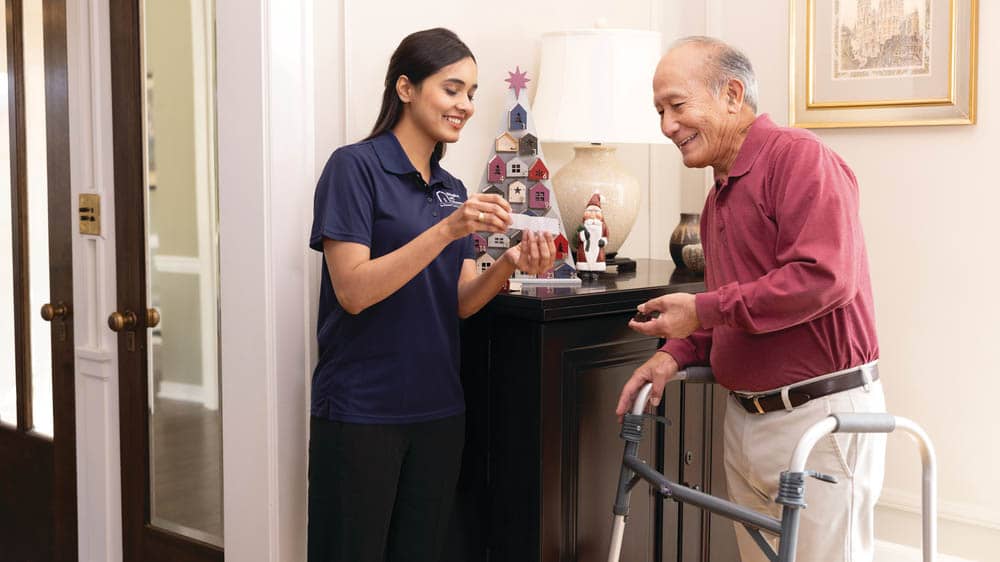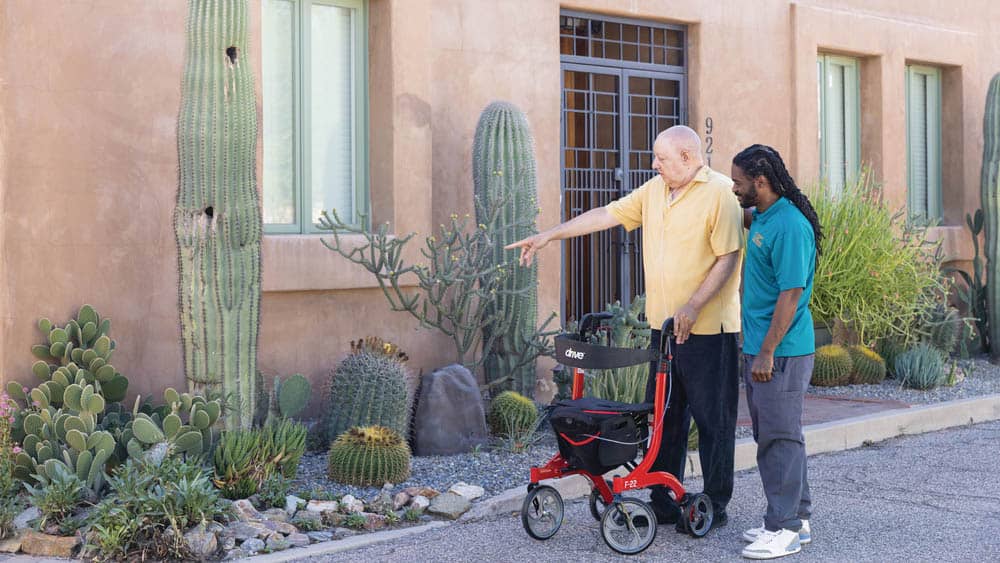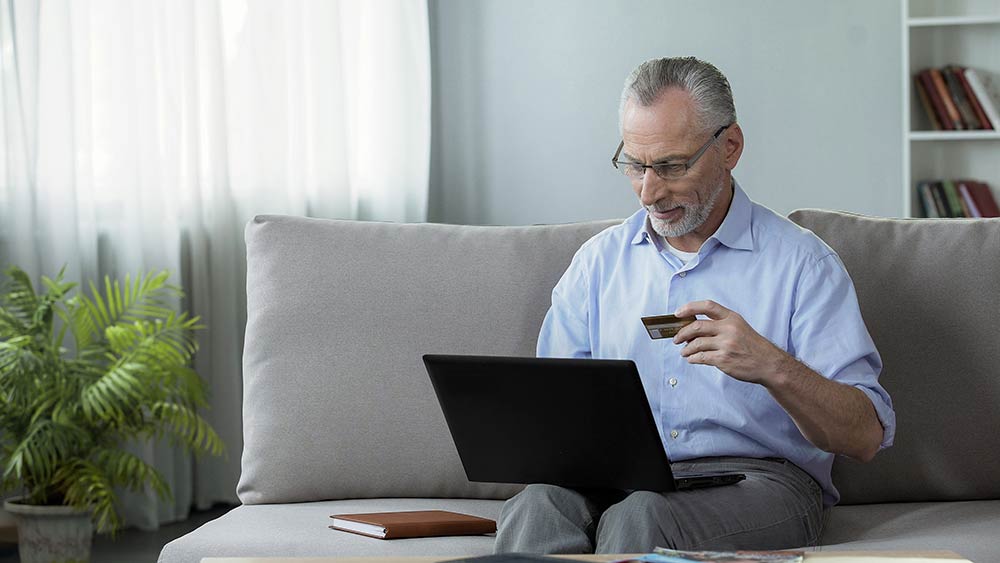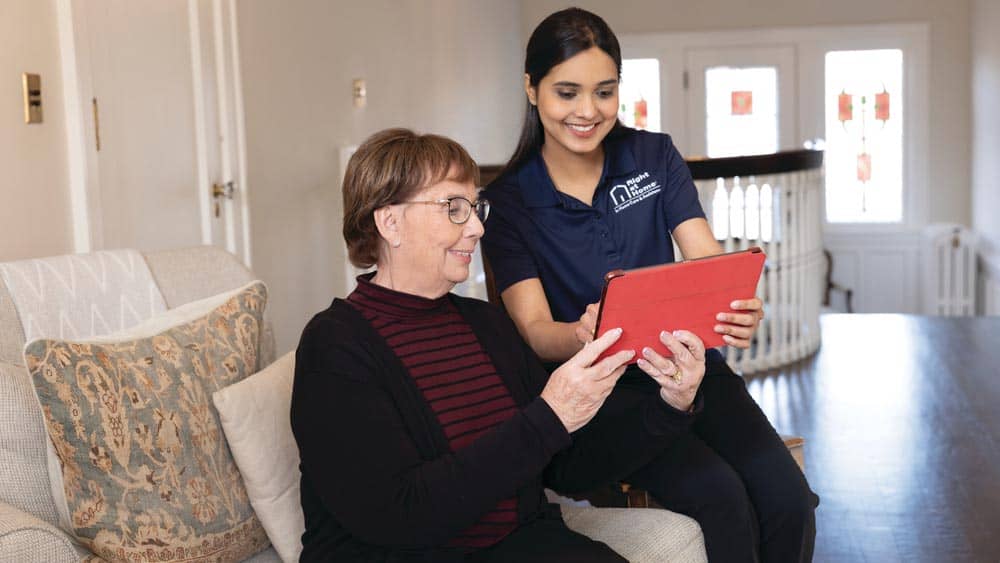
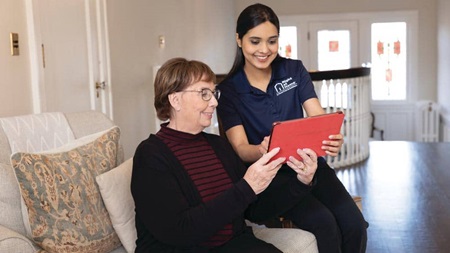
Best Tech Fit for Seniors Is Not One-Size-Fits-All Proposition
Generally speaking, most folks age 65 and over are tech-challenged to one degree or another. That’s not true of all seniors, though. Some older adults embrace tech, either by choice or necessity. Since the spectrum of seniors’ tech knowledge and use spans from high to none at all, there’s much to consider for that age group when choosing a digital phone or computer. Do they need a smartphone, or will a basic mobile or even flip phone do? There are a multitude of apps and data plans to choose from. When it comes to computer devices, is a desktop, laptop, or tablet the best choice?
The Best Device Is a Custom Fit
The takeaway from all this is that what may be right for one person may not be sufficient or appropriate for another. If someone is easily overwhelmed by technology or barely uses it, getting them the latest and greatest gizmo will likely be a waste of money because they may be frustrated trying to learn how to use even its basic functions, let alone all the bells and whistles. There’s no reason to get someone a smartphone if they only use it for making and receiving calls. On the other hand, a rich gallery of features may be just what someone else wants.
So, how do you determine which device or app is best?
- If you are a family member helping an aging loved one choose a tech gadget, don’t assume you know what is best for them, much less what they may want. Instead, ask questions about their likes and dislikes. They may be more open to high-tech than you imagined.
- The range of options available can be daunting. That’s why experts advise researching online and asking friends, family, and neighbors for recommendations or tips. If you are familiar with your loved one’s lifestyle, you may be in a good position to help guide their purchase. Once that purchase is made and the product is in your loved one’s hands, you may even be able to help get them up to speed on using the device or app.
Finding the right cellphone, app, or data plan really comes down to fit. When it comes to tech, no one size or feature fits everyone. The best fit comes down to individual preferences and needs.
Apps That Offer Unique Features
The app world is continually responding to special needs and niche audiences, including older adults. Here are just a few free apps for iPhone and Android devices that may help make life easier for seniors:
Medisafe: Many seniors take multiple prescription medications, not to mention over-the-counter vitamins, supplements, and other health-aid products. Tracking when and how to take all those substances is no easy matter, which is why many prescriptions are not taken as directed by a physician or pharmacist. That’s where a free app such as Medisafe can be a practical tool. Once prescriptions and schedules are entered, Medisafe will display a visual readout to help the senior and caregiver manage dosing schedules, provide reminders when medications run low, and give alerts of missed doses.
GoodRx: If caregivers know an aging loved one struggling to pay for prescription medications or perhaps even someone who forgoes filling some prescriptions due to cost, the GoodRx app can be a handy way to search for affordable meds. The app lets users compare drug prices by pharmacies and offers coupons on select purchases. It can also alert users when preferred meds drop in price and when refills are due. If the senior uses Medisafe, they already have access to GoodRx’s features.
Google Maps: Older adults who tend to forget where they park their vehicle or who get lost en route to their destination can relieve some of the stress of parking and driving with the Google Maps app. The popular tool’s locator feature helps ensure older adults never lose track of their vehicle, and its GPS-enabled navigation system provides real-time directions to any destination.
Magnifying Glass + Flashlight: For seniors with vision issues, the Magnifying Glass + Flashlight app is a discreet visual aid. The magnifier can make the small print on prescription and product labels, packaging, documents, and screens easier to decipher. The flashlight can help seniors read menus in dimly lit restaurants and provide a subtle light trail for navigating halls and aisles in dark movie theaters. The app comes in handy, too, when a senior gets up in the middle of the night, as it can light their way to the bathroom, kitchen, or wherever they need to go.
LastPass: The LastPass app is a safe, convenient digital storage and reference space for all those annoying online passwords that typically get scribbled down on scrap paper or in notebooks and can easily be lost, damaged, or compromised. This secure, paperless, one-stop resource might be the right option for older adults with some familiarity and comfort with home tech products and protocols.
How To Choose the Best Device
Apps are only as good as the phones they get uploaded to, and the devices available to consumers are vast. A family caregiver making or consulting on the purchase of a phone for an older adult needs to be cognizant of which phone makes the most sense or best fits the senior’s lifestyle preferences and needs.
Experts advise erring on the side of caution by getting a cellphone with these features:
- Oversized, easy-to-depress buttons and a large, bright display screen.
- A speakerphone with loud, clear sound to allow for hands-free communication.
- Voice-activated commands and typing that enable placing calls, dictating text, and controlling other phone functions.
- If the senior uses a hearing aid, make sure to get a cellphone that is hearing aid compatible.
- Ease of use is vital for many seniors, so caregivers should insist that they invest in a cellphone with a simple, easy-to-understand menu system.
- If the older adult is aging in place and has chronic health issues, an SOS button is a peace-of-mind feature if they need to call for help in an emergency.
- Similarly, families separated by some distance from their older loved one may prefer that the senior has a phone that sends emergency alerts if the user doesn’t respond to calls or texts for a set period of time.
- The last thing an older person wants to worry about is always having to charge their phone; therefore, a model with a long battery life is a good choice.
- In terms of special needs, memory cellphones designed for individuals with memory loss use intuitive controls and facial displays to help users identify and call the people in their lives.
- Cellphones are only as good as their coverage network and data plan. Family caregivers should make sure their loved one gets a phone and coverage-data plan that fits the senior’s budget and needs. Family caregivers should also ask about discounted senior plans.
Picking out a phone should again be about the best fit. If price is no object and there’s a desire to have all the extra features, the decision is relatively easy. However, if price is a factor and the senior needs to stay on a budget, experts agree that a less-is-more approach may be the way to go. As long as the phone has the convenience, ease of use, sound quality, battery life, and reliability the senior is looking for, many of the extras may not be so important.
It’s worth noting that tech has reached a point where home entertainment and smart emergency contact systems can be integrated with phones—something that seniors and family caregivers may want to consider investing in if it’s affordable.
Smart Screens
Many older adults and family caregivers worry about real-time connectivity, so smart screens can be an important bridge to keeping loved ones connected. Smart screens connect to the home’s Wi-Fi network, allowing for video and voice calls to family and friends, telemedicine appointments, and emergency services. They also offer voice control, which allows users to call up those contacts, along with news, weather, and trivia—all via voice commands.
An example of a smart screen is the Amazon Echo, which provides music on demand and activates and controls things like the home thermostat, lights, shades, and other systems.
The Apple iPad tablet may be a good option for an older person who wants all the connectivity, including browsing the internet, reading e-books, and watching videos, built into one hand-held device. It can even synch to the cellphone to make and receive calls. It also has a large, easy-to-use touchscreen and a Siri voice-control system. Since it’s linked to the App Store, it can load games, video-streaming services, and anything else an older adult may enjoy. It can also combine multiple smart-home devices with one voice command.
Another consideration is what kind of internet access and connectivity a senior has based on which internet provider they have and where the senior lives. Not all connectivity is created equal.
How Right at Home Can Help
Right at Home offers many home care services, ranging from companionship and homemaking to personal care and hygiene assistance. Our caregivers can help older adults stay in touch with family, use their technology devices, and safely age in place. To find out more, use our office locator to find the office nearest you and speak with a local aging specialist.
Subscribe to our Caring Right at Home e-newsletter today to receive information, advice, and tips about the aging journey.





